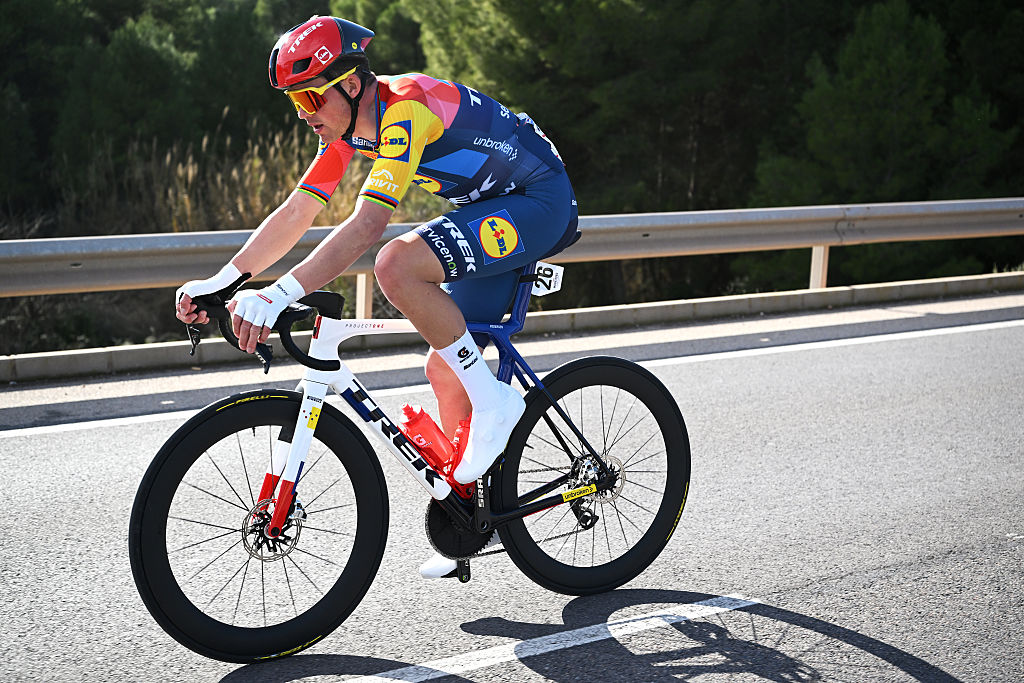Michael Creed: Why I never doped and my future in the sport
Creed talks about his fears of doping; his 2005 San Francisco display and his future
The latest race content, interviews, features, reviews and expert buying guides, direct to your inbox!
You are now subscribed
Your newsletter sign-up was successful
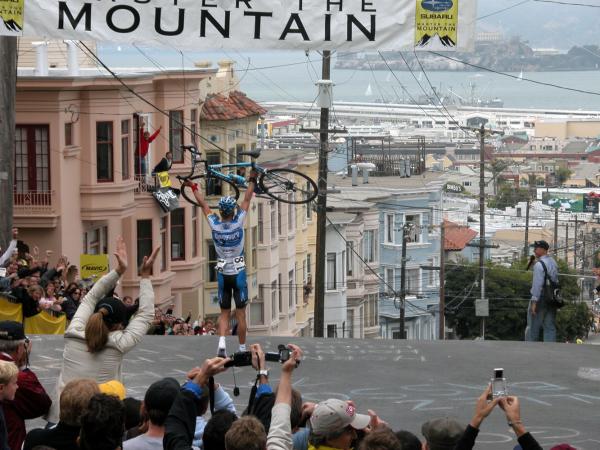
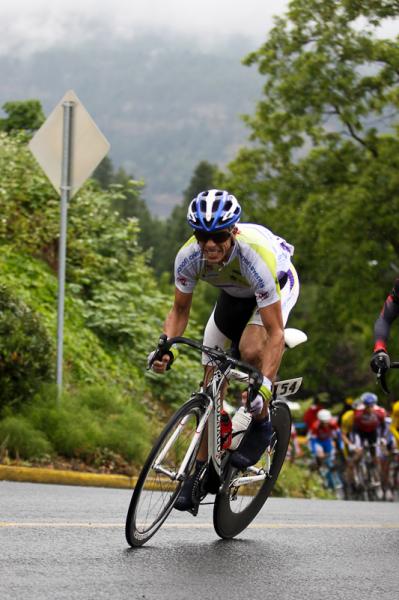
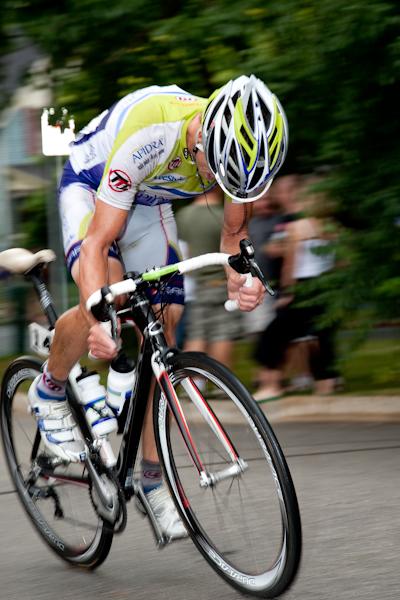
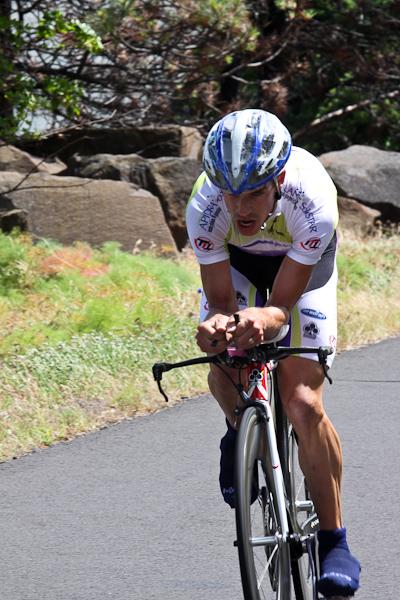
There’s an American hero in town and he’s lighting up a bike race with a performance soaked in everything that makes racing so exciting. It’s a ride of panache, guts, grace and a pure bloody-mindedness that says, today I’m going to leave everything out on the road.
This isn’t Lance Armstrong winning one of his seven Tours, nor Greg LeMond trailblazing through Europe as he skittles through the opposition.
Instead, a second-year professional is dazzling the crowd at the Barclay's Global Investors Grand Prix in San Francisco on a sunny summer’s day in 2005. He won’t win the race and despite his antics he’s about to be swallowed up by a hungry bunch. In fact by the end of the day a big DNF will sit next to his name in the results sheet. Yet for now, for the briefest of moments, he and the thousands of fans on Fillmore Hill don’t care. They’re cheering as if he’s dropped everyone on the Tourmalet, soared away from Marco Pantani or smashed Laurent Fignon in a time trial.
Five years later, the summer of 2010, and the same rider picks up the phone in his home in Colorado Springs. “So, do you want me to write the truth or do you want me to write what you want people to think about you?” I ask.
He’s not yet had his morning coffee and his gravelled voice trickles through the receiver. “Shit man, you can’t give me that as your first question. Come on, dude. Come on.”
We’re back to that summer’s day in 2005, and Mike Creed stops at the top of the Fillmore Hill and the crowd reach fever pitch. He unclips, gets off his bike and in the same movement lifts his frame above his head. The race is a circuit of 12 miles covered 10 times and for the last three laps, Creed, who knows the game is up, has pulled the same stunt.
“Go Creed. Go Creed,” they chant.
The latest race content, interviews, features, reviews and expert buying guides, direct to your inbox!
As the crowd go wild Creed raises his hands higher, his Trek bike glistening like a trophy above his head as he shakes it, milking the affection for all it’s worth. Armstrong owned the Champs-Élysées, but he never had this. It’s Creed’s last race of the season, his last with Armstrong’s Discovery Channel team after two disappointing years, but unlike so many riders who disappeared without a trace from that team, he’s going out with a bang.
“I had the whole town, man,” Creed says as the effects of his morning brew take effect. “Discovery thought I was crazy but I did it three times at the top of the climb. Every time, man.”
Creed broke away early in the race. Riders had been trying to chase all day, while each time his directeur sportif had pulled alongside him and told him to wait each time. Every request had been met with an angry look, as if to say, ‘does it look like I want to wait?’. Creed was riding for himself today. There wouldn’t be any team orders and there wouldn’t be any common sense. The odds were lousy, the form mediocre but it was a ride straight from the heart and it was going to get him noticed. He wanted to prove a point. Discovery might have given up on him but they were wrong to let him go. He was worth more than what they’d seen and more than what he’d given of himself.
Creed is now approaching his thirties and with multiple national track titles to his name, is at somewhat of a crossroads in his career. After his stint with Discovery, he bounced from team to team, first with TIAA-Cref-Sliptream, then Rock Racing and now Team Type 1. However his time with his current team hasn’t been a bed of roses. The team have cut him from racing unless he pays for his travel and expenses and he hasn’t raced since June.
It’s a sorry state of affairs, compounded by the fact that a back injury that has plagued his career constantly keeps him from training. At 29, Creed’s career as a professional bike rider could conceivably be over. Strange, considering he’s scored one of his best results in years this season, with second overall in Mount Hood.
Did it all go wrong or is there more at play?
A talented rider from an early age, Creed rose through the ranks of the US development system before signing for Discovery. It was a dream signing, riding amongst Armstrong and his untouchable, unbeatable cohorts. However, behind the surface all was never well.
Part of Creed’s character dictates that he speaks his mind, probably too much at times. “He’s too intelligent to be a bike rider,” recalls one of his old team bosses.
Aside from that he’s also a rider who has raced clean throughout his career. Never touched a thing, he will tell you. No mean feat when you consider he turned professional with one of the most polluted generations in cycling’s history.
Not that he crusades for a cleaner sport or toasts dopers when they’re caught or even brags about his past. You have to drag it out of him and he looks at those who bemoan dopers with a passive disdain.
“If I was paid that kind of salary, I’d be that vocal too about doping,” he says about one prominent rider who often speaks in the war against doping.
It all goes back to his time at Discovery, a team rich in allegations of organised doping and where Creed never mixed with the inner sanctum.
“I look back at that time in cycling and the kind of rider I was on that team, and I cringe,” he says. “I probably did have the chance to make different decisions, but it’s not like a form you fill out."
Away from the Discovery spotlight and looking at his entire career, there were always opportunities. “Of course there was temptation and huge temptation. I had a lot personally because I don’t see doping as a moral thing. I don’t see taking drugs as a moral flaw.
“That sounds weird but I’ve seen guys who have really good morals do some bad stuff in cycling. And guys that don’t dope do some really bad things in life. So for me it wasn’t a moral thing. If I did it I wasn’t going to be a bad person.”
Creed is perhaps unique, or at the very least openly honest in his reasons for not doping, admitting that while the lines of right and wrong are often blurred, his own concerns were far clearer. “It was just me being afraid,” he says.
“I was really scared. There were a lot of people being caught. Maybe if I’d sat down with a doctor who was willing to give me whatever, maybe it would have calmed me down. But I never took that initial step because eventually someone is going to know. Even if I just ask the question but don’t go through with it I’ve already crossed the line. I didn’t want that story.”
It’s also came down to finances too. Creed, who spent time away from his wife and family in Europe, was shacked up in basic accommodation in Girona, Spain. Training, racing, training, racing, sent from crappy 2.2 race to crappy 2.2 race. Each week getting his ass handed to him by riders sometimes less talented but often better prepared.
Depression set in. The loneliness of being away from home, of seeing nothing but the inside of a bus, a peloton and then a hotel, taking its toll. Outside of racing the knitting circle that is Girona would suffocate, each beer indulged, making its way back to the team, each training ride cut short filtering through to team managers who would stare down riders over dinner.
“But when you’re making 50K and the stuff isn’t rocket sauce, it doesn’t make you incredible, so am I just taking it to keep my job or to make 80K? I'm not as talented as some. And with my back issues is that really worth the risk? I don’t think it is. I think that’s what it always came down to.
“My dad works in a bike shop. I love cycling, I don’t want to be kicked out of it. It was never a moral thing,” he reiterates. “I think someone like Tyler Hamilton is a really moral guy, anyone would be lucky to have him as a neighbour. There are probably a lot of guys out there that don’t take EPO but you don’t want them as a neighbour.
“And I don’t want that to be the cop out. Oh that guy took drugs, he’s an awful person, because you’re just being lazy if you think that. Some people just need to hang out for a couple of beats and figure out why a rider’s doing it and why he’s denying it and how embarrassed he must be. It’s all complicated. It’s just that much easier to judge people.”
Creed could be bitter but there’s a genuine bluntness to his views on doping. It’s not a case of wrong or right, more a case of understanding why people make choices and how despite their mistakes or merits there’s more to cycling that just doping.
“I’m staying in this shitty flat, doing shitty races, getting my ass kicked, going to shit hotels,” Creed continues. “I’m away from my family, I have no money and there’s this guy who’s taking this and that and he’s making enough money to take his wife over, he’s doing the races he wants to do, not having pressure. That’s all big. I don’t think people realise how much depression can set in and make them do some bad decisions.”
Creed may still race again this year and he may even race for another few years on the US professional circuit. He’s currently still on Type 1’s books but open to offers. Playfully, he’s considering sending Johan Bruyneel an email asking if there’s a place on RadioShack.
“When I do quit the one thing I’m really going to miss from racing is that exhausted feeling after a race,” he says. “If you’ve ever been at a stage race and you drop out and you can’t fly home immediately there are these things that give you pain and every pro will tell you that it hurts. When the guys eat their race meal, or walk to the bus. The worst is being in the bus after the race and hearing them talk about the race. They have that really dehydrated sunken look and you want that so bad. It’s addictive.”
Motivation now comes from a willingness to race, to sacrifice everything in order to get that hit racing gives him. Racing is perhaps his addiction or his drug. “Now I just come to the race and allow myself to suffer and I didn’t use to do that,” he says. “Jonathan Vaughters once turned around to me at a race and said, ‘I learnt late in my career that it just doesn’t matter how your legs feel, you have to stop caring how your legs feel’. And once I learnt that I did a lot better and at the time it didn’t make any sense. I was thinking what the hell are you talking about?”
Creed’s year has fallen flat but before he lifts up his bike for one last time and hangs up his wheels he wants one thing. “I guess...I guess I just love bike racing. I’d really like to win a race but most of all I just want to finish every race exhausted and totally spent.”
With some uncertainty over his future, who could begrudge him another day’s racing like the one he had on Fillmore in 2005?
Daniel Benson was the Editor in Chief at Cyclingnews.com between 2008 and 2022. Based in the UK, he joined the Cyclingnews team in 2008 as the site's first UK-based Managing Editor. In that time, he reported on over a dozen editions of the Tour de France, several World Championships, the Tour Down Under, Spring Classics, and the London 2012 Olympic Games. With the help of the excellent editorial team, he ran the coverage on Cyclingnews and has interviewed leading figures in the sport including UCI Presidents and Tour de France winners.

